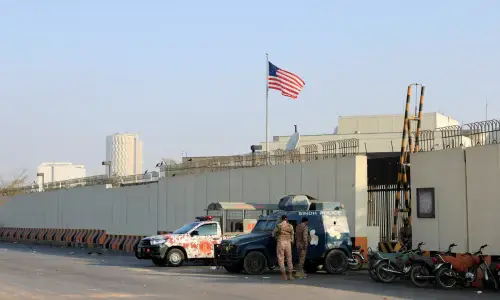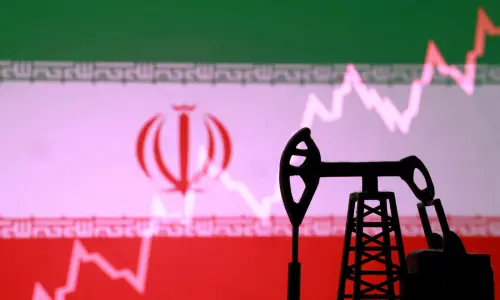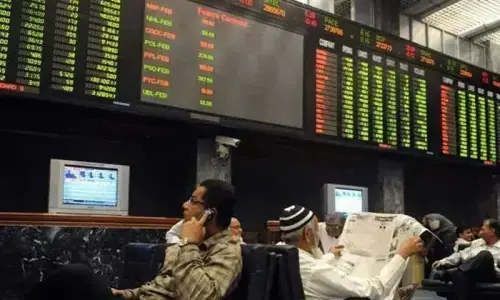THE rift within the Supreme Court shows no signs of healing. With the incumbent and incoming chief justices still seemingly jousting over issues big and small, plaintiffs and petitioners can only pray that they do not get trampled like the proverbial grass during an elephant fight.
The schism in the top court has distracted the institution’s focus away from its core responsibilities, leaving a vacuum in the trichotomy of power. This bodes ill for a country suffering protracted social and political unrest.
The superior judiciary is supposed to be the voice of wisdom and restraint in testing times: instead, it is displaying an inability to get over what is seen as personal differences to agree on a basic modus vivendi.
The matter of elections to the KP and Punjab assemblies has been the judiciary’s biggest challenge this year. It is disturbing how little progress it has seen despite the chief justice himself presiding over the relevant cases. The continuing inability of the court to enforce a straightforward rule enshrined in the Constitution has depleted the institution’s prestige and power.
Deadlines have come and gone, yet a decisive resolution remains elusive. It was clear from the beginning that there never was a legally defensible reason to delay elections beyond the 90-day deadline.
A quick, clear ruling on the matter could have spared the country the unrest seen in recent weeks. Instead, the judiciary showed weakness by failing to contain or, subsequently, address its divisions, which the government and its enablers have treated as a carte blanche to subvert the law. It has remained unable to regain its footing after that initial blow.
Those caught on the wrong side of today’s powers have been complaining about a gradual breakdown of the legal order. While Pakistani rulers, the PTI included, have displayed a general contempt towards rules and laws, it cannot be denied that the judiciary’s present inability to stand firm and united has greatly emboldened lawbreakers and made them seem invincible.
As a result, the judiciary has been questioned at every level in recent days by an executive acting as if it is untouchable. Release orders, bails, habeas corpus rulings, and so on have been treated with disdain, signalling the rapid breakdown of the idea of the separation of powers as envisioned in our Constitution and the quiet ushering in of a more authoritarian system of governance.
Those at the very top of the judiciary must realise that their space and power are being encroached upon while they quarrel. A full court meeting must be called post haste to chart a path forward. The judges must talk over their differences and close ranks. The institution is quickly being compromised; they may not have long to act.
Published in Dawn, May 30th, 2023






























